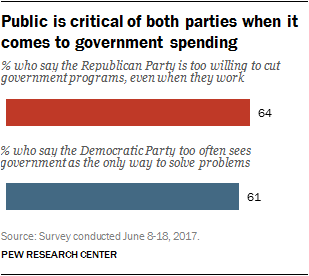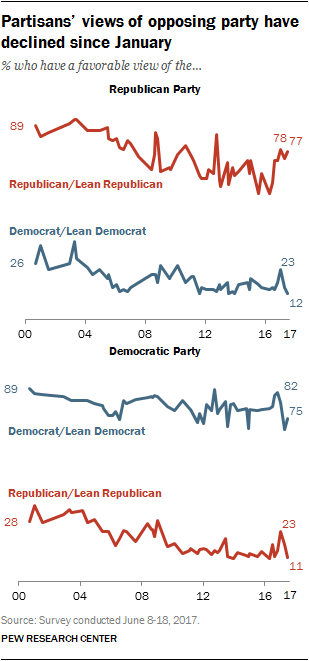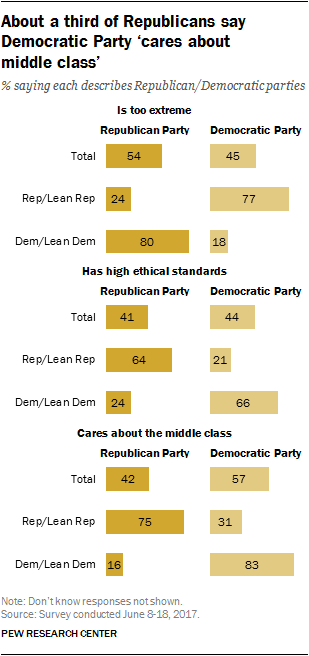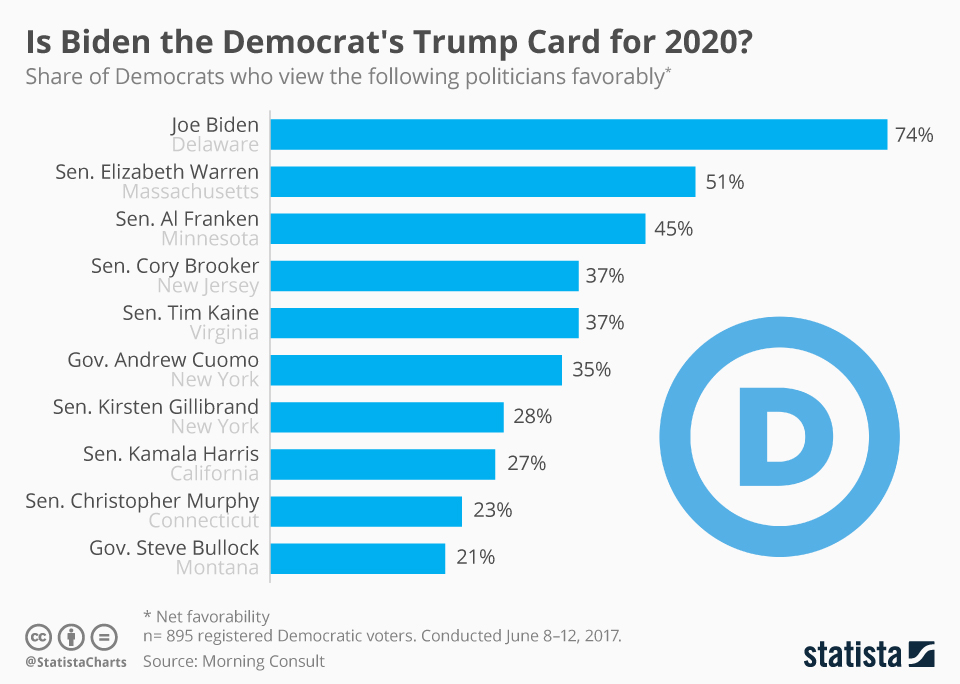The Republican Paradox: Why they keep winning despite record low approval rates for Trump
After a congressional race that attracted national interest and was the most expensive House race ever, Republican Karen Handel won the special congressional election in Georgia, defeating the Democrat’s candidate. Jon Ossoff’s narrow loss comes as crushing blow for the Democrats who promoted it as a referendum on President Donald Trump.
The election has turned into the most expensive in Congressional history, with $51 million spent. Ossoff’s campaign spent more than $22.5 million on the race and succeeded to narrow a 23-point gap in last year’s election to about six points,
“Democrats from coast to coast threw everything they had at this race, and Karen would not be defeated,” said House Speaker Paul Ryan.
Meanwhile, Handel’s victory comes as good news for the Republicans but also for President Donald Trump. In her victory speech, Handel offered “ special thanks to the President of United States of America,” as the crowd began chanting Trump’s name.
In return, Donald Trump tweeted his congratulations to the Republican candidate.
Congratulations to Karen Handel on her big win in Georgia 6th. Fantastic job, we are all very proud of you!
— Donald J. Trump (@realDonaldTrump) June 21, 2017
This the fourth consecutive win for the Democrats since Donald Trump was elected President of the United States. Now, the Democrats are facing a clear challenge if they hope to take back Congress next year. If Ossoff would have won, the 2018 midterm elections could look more challenging for the GOP.
Democrats would need to flip 24 seats this fall to take back the House. To gain a majority, the party needs to find a way to win in districts such as Georgia – traditional Republican districts weakened by grassroots movements and college graduates.
Meanwhile, Democrat Congressman Seth Moultan tweeted that the race is Georgia should be a wake-up call for the Democrats, which should change their message and propose a jobs plan that reaches the American voter.
We need a genuinely new message, a serious jobs plan that reaches all Americans, and a bigger tent not a smaller one. Focus on the future.
— Seth Moulton (@sethmoulton) June 21, 2017
Democrats may try to call the outcome a moral victory, given that Georgia is a state traditionally leaning Republican, but this does not change the fact they are now facing a disadvantage in the congressional races this year. Even after spending millions of dollars and having a motivated base unsatisfied with the win of Donald Trump and his proposed measures.
Georgia was a district that looked prepared to challenge the Republicans’ expectations. Hillary Clinton only lost the district by one point in 2016, and voters here supported Marco Rubio and Ted Cruz in the Republican primary. Ossoff was ahead in polling at times, and was supposed to benefit from a high voter turnout among the newly supposed to benefit from a high voter turnout among the newly energised liberal base.
Republicans have won three special elections in a row (Kansas, Montana, and now Georgia) which will likely help their party’s recruitment, and hurt Democrats’. However, as President Trump tweeted the Democrats are being led 5-0 after the defeat in Georgia and South Carolina.
Well, the Special Elections are over and those that want to MAKE AMERICA GREAT AGAIN are 5 and O! All the Fake News, all the money spent = 0
— Donald J. Trump (@realDonaldTrump) June 21, 2017
An election that did not attract as much attention that the one in Georgia brought another seat for the Republicans in South Carolina. Ralph Norman has also won a special election to fill the South Carolina congressional seat vacated by Mick Mulvaney, who resigned to work for President Donald Trump’s administration.
The millionaire real estate developer won the special election over Democrat Archie Parnell. Interestingly, in the South Carolina race, where the party invested few resources, the Democratic candidate came closer in defeat than Jon Ossoff.
Ralph Norman ran a fantastic race to win in the Great State of South Carolina's 5th District. We are all honored by your success tonight!
— Donald J. Trump (@realDonaldTrump) June 21, 2017
A possible explanation could be the fact that so the Democrats had run weak candidates in red but still achievable states. Ossoff was the best recruit Democrats had available in the district, although he was inexperienced and his house was located just outside the district boundaries.
The 30-year-old Democrat ran a campaign with unprecedented support from national grassroots donors, faced an opponent with a controversial history who has significantly more political experience than him.
The voters have criticism for both parties
The latest national survey by Pew Research Center found that despite the complicated situation in Washington the voter’s continue to be critical of both political parties, as well President Donald Trump.
The public continues to be critical of both political parties. Both parties’ favorability ratings are more negative than positive and fewer than half say either party has high ethical standards. Majorities also fault both for their approach to government spending.
Just 40% view the Republican Party favourably, while 54% have an unfavourable impression. Opinions about the Democratic Party are similar (44% favourable, 50% unfavourable).

The report shows that ratings for both parties are lower than they were in January, when about half viewed the Democratic (51%) and Republican (47%) parties favourably.

But as in the past, more people say the Democratic Party “cares about the middle class” (57%) than say that about the Republican Party (42%). And while 54% say the Republican Party is “too extreme,” fewer (45%) say this phrase applies to the Democratic Party. The share saying the
Democratic Party is too extreme has risen over the past year (from 37%) while perceptions of the GOP have shown less change.

Republicans also are far more likely to say the Democratic Party cares about the middle class than vice versa: 31% of Republicans say the Democratic Party cares about the middle class, compared with 16% of Democrats who say this about the GOP, found the national survey lead by the Pew Research Center.
Regarding Donald Trump’s job approval, ratings continue to remain more negative than positive. Currently, 39% of the public approves of the way Trump is handling his job as president, while 55% disapprove. Ratings of Trump are virtually unchanged from April (39% approved) and February (also 39%).
The results of the latest congressional races show that the scandals and controversies surrounding President Donald Trump, as well as the fact that he is the least popular president dating back to Harry Truman, Democrats still have not found a way to capitalise on the low disapproval ratings. Nor did they seem to find the right candidates to beat the Republicans.
A possible explanation could be that the most prominent politicians in the Democratic party are still the previous leaders such as Hillary Clinton, Barack Obama and Joe Bidden or polarising figures such as Bernie Sanders and Elizabeth Warren.
Is Joe Bidden the Democrat’s candidate for 2020?
A new survey by Morning Consult reveals how registered Democratic voters view potential candidates for the next Presidential Election in 2020. When asked about their view of several Democrats that may run, the clear winner was formers Vice President Joe Bidden.
Bidden had the best results among party members, with 74% percent say they have a favourable view of the Senator of Delaware.

Even though in 2020, Bidden would be 77, the former Vice- President is not completely dissmising the possibility of running come next exlection. In a recent interview with NPR, Biden said:
“I have no intention of running for president but I’m a great respecter of fate. … I don’t have any plans to do it, but I’m not promising I wouldn’t do it.”
The second position is occupied by Elizabeth Warren. The Senator of Massachusetts is also the most popular of the currently active politicians in the survey. Just over half of Democratic voters (51 percent) have a favourable view of Warren, well short of the 74 percent of party members
who view the former vice president favourably.
Senator Al Franken ranks third on the list of Democrats when choosing their next candidate to run against President Donald Trump if he decides to run for a second mandate.